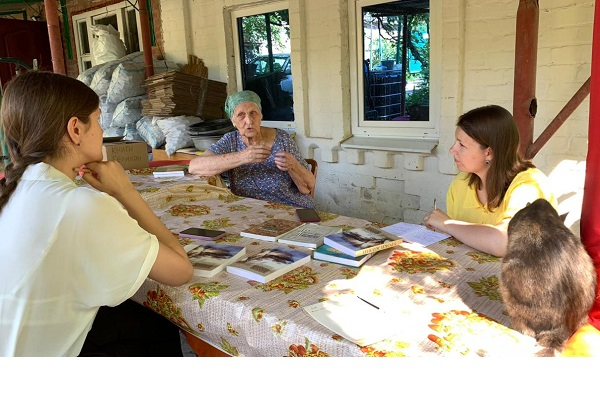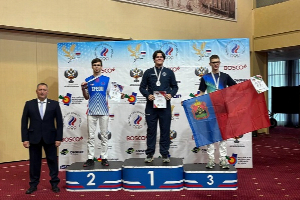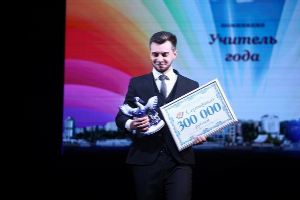
The beginning of July is the time of traditional dialectological practices for philologists. This year, second-year students of the direction "Domestic Philology" of the Institute of Philology, Journalism and Intercultural Communication of the Southern Federal University are practicing in two formats.
One group, within the framework of an agreement on cooperation between the Southern Federal University and the Institute of Linguistic Research of the Russian Academy of Sciences, went to St. Petersburg under the guidance of Natalia Kalinicheva, senior lecturer at the Department of General and Comparative Linguistics, to work in a large file of Dialect dictionaries of the Institute of Linguistic Research. Students were engaged in preparing materials for the Atlas of Russian Folk Dialects, made a thematic selection and verification of vocabulary according to the questionnaire program, participated in replenishing the Atlas card index, got acquainted with the concept of dictionaries and atlases, and also worked with the authors-creators of these publications, leading experts in the field of Russian dialectology and dialect lexicography.
The  eads of the practice from OR RAS noted the high level of linguistic training of students of the Southern Federal University in theoretical knowledge, as well as the formation of the necessary practical skills.
eads of the practice from OR RAS noted the high level of linguistic training of students of the Southern Federal University in theoretical knowledge, as well as the formation of the necessary practical skills.
The second group of Russian philologists participated in annual field research conducted in the Rostov region as part of the implementation of the educational program and the collection of information for the program "Lexical Atlas of Russian vernacular". This year, the Mishkinskaya village of the Aksai district was chosen for these purposes, on the territory of which, under the guidance of Candidate of Philological Sciences, head of the Department of General and Comparative Linguistics Marina Flyagina, students collected information about the peculiarities of the traditional spiritual and material culture of the inhabitants of the Don village, recorded the spoken language of speakers of Don dialects. Students were interested in wedding and calendar-household rituals, technology of construction of traditional types of housing and recorded dialect vocabulary, studied the names of objects of peasant life, local plants, animals and landscape.

Their informants shared interesting information about local toponymic names and the history of their origin with young researchers. This type of practical activity of students allows not only to preserve the unique field material, despite the rapidly disappearing traditional rural culture, but also to become a connecting thread for different generations and eras. The collected field material is an invaluable source for scientists studying the language, history and culture of our country, and the work of students is of particular importance not only for the development of their educational and professional competencies, but also for the development of Russian philological science as a whole.

Short link to this page sfedu.ru/news/75692




